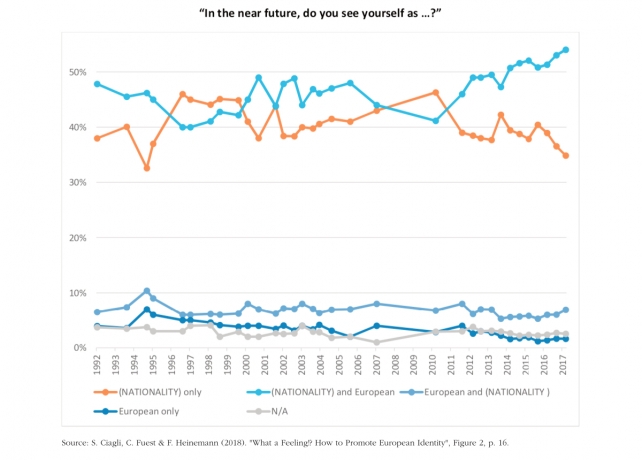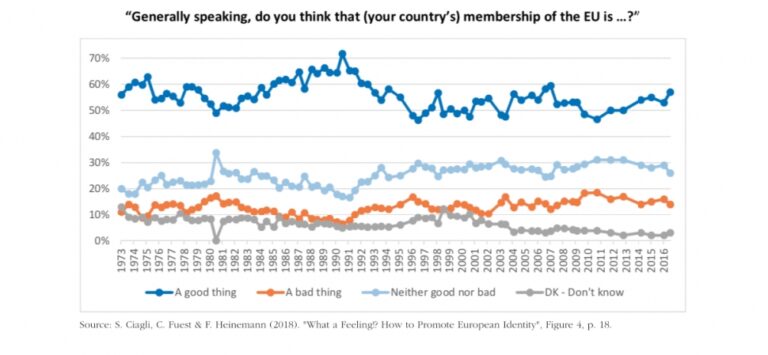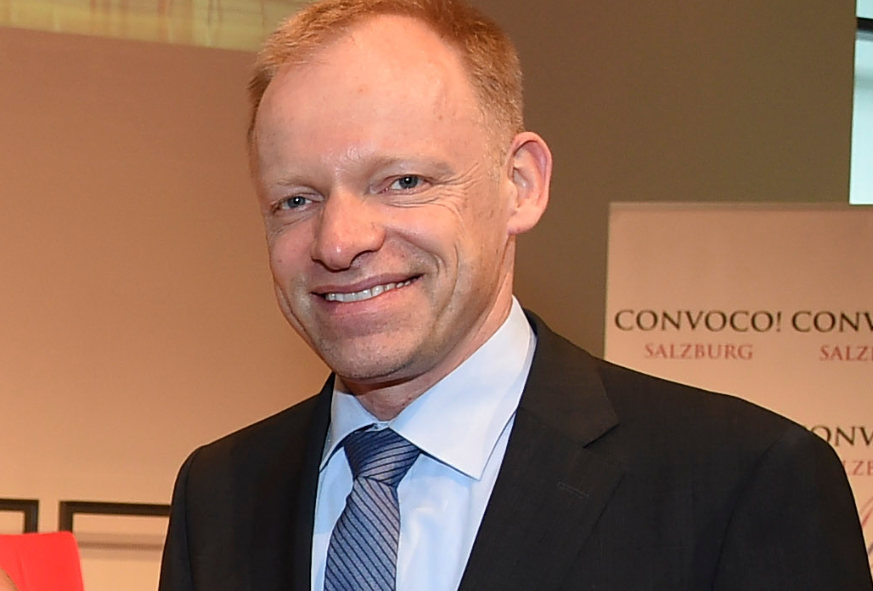Convoco talked to Prof. Clemens Fuest, President of the ifo Institute for Economic Research in Munich, about his study:
What a Feeling?! How to Promote “European Identity
Here, European identity is defined as “identification as European,” meaning a general attachment or positive feeling towards Europe.
"The most important factor for developing European identity is certainly the experience of meeting and positively interacting with Europeans from other countries"
Convoco: Why did you decide to do a study on European identity? What is the relationship between European identity and the economic wellbeing of the European Union?
Clemens Fuest: In economic and social sciences research, “identity” as a person’s sense of self is increasingly seen as an important factor in economic behavior and both economic and political outcomes. The extent to which people see themselves as Europeans will have an impact on the future of European integration. This is why it is important to understand the causes and consequences of identification with Europe.
C: Europe has been experiencing a series of crises in recent times. What has been the impact on the sense of European identity?
CF: Perhaps surprisingly the various crises have not led to an erosion of European identity. The share of citizens in Europe who see themselves as both nationals of their respective countries and as Europeans declined slightly during the years of the Eurozone debt crisis but then recovered quickly. Today a clear majority of citizens consider themselves (also) as Europeans, more than ever before.

C: A series of EU members, most prominently Hungary and the United Kingdom, have diverged from the EU in the past years. Nevertheless, your study shows that their citizens’ identification as European has increased at the same time. How do you explain that?
CF: In the UK especially, only a small part of the population identify themselves as European. But Brexit as well as the conflicts between Hungary and the EU have reminded many people of the fact that Europe plays an important role in their lives. At the same time European identity is not the same as supporting the EU, its current policies, or even EU membership.
C: How do cultural or socio-economic conditions in European states influence their respective citizens’ identification as European?
CF: The general economic situation does not seem to affect European identity much; in contrast, support for the EU falls if the economic situation worsens. The same holds for the perception whether or not a country benefits from the EU. European identity is about more than direct economic benefits.

C: What factors can explain an individual’s affirmation or rejection of a European identity?
CF: People who have more education, more knowledge about European institutions, and who have been in contact with people from other countries tend to identify themselves as European. In contrast, right-wing political preferences and higher age go along with a lesser sense of European identity.
C: In a recent survey in the Convoco network 73% of respondents identified to some extent as both national citizens and Europeans. Your study, however, also shows some competition between national and European identities. How do you see the relationship between the two?
CF: I do not see a conflict between the two. Most people who report themselves as feeling European also report attachment to their home country. In our study we did not investigate attachment to regions or smaller entities, but it is a well-documented fact that many people feel a strong attachment to the city or region where they grew up. In addition, identity has many other dimensions, in particular the work we do, the family to which we belong, and so on.
"The Europe of the future will not be a European state similar to the US or other federations but a more complex and decentralized entity"
C: China has successfully increased both national unity and domestic economic integration through large-scale infrastructure projects, e.g. high-speed train links. You make a series of proposals to promote a shared European identity. In your opinion, what is the most important factor?
CF: Identities evolve slowly. The most important factor for developing European identity is certainly the experience of meeting and positively interacting with Europeans from other countries.
C: What is your outlook for the future of European identity?
CF: My hope is that this is not something that mechanically changes with age but a consequence of the fact that we interact and cooperate more and more across borders. I would expect the share of the population identifying themselves as Europeans to grow further.
C: Please tell us, what kind of Europe are you hoping for? What kind of Europe should we strive for?
CF: Europe is one of the most peaceful and prosperous regions in the world. To preserve and improve this further we need to extend our cooperation and work together more than before in those areas where joint action is less costly or more effective than action at the national or local level. At the same time, we need to use the advantages of decentralization where it is appropriate. The Europe of the future will not be a European state similar to the US or other federations but a more complex and decentralized entity. Hopefully it will nevertheless be successful.
Clemens Fuest is President of the ifo Institute, Professor for Economics and Public Finance at the LMU Munich, Director of the Center for Economic Studies (CES) and Executive Director of CESifo GmbH.


